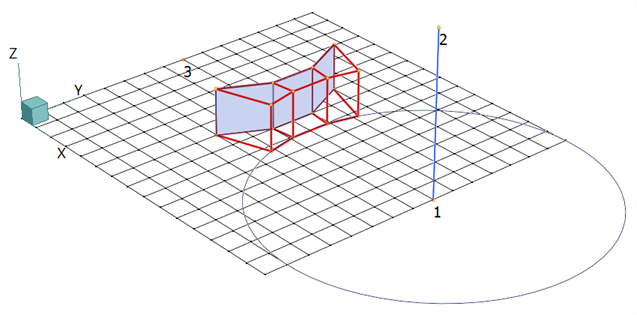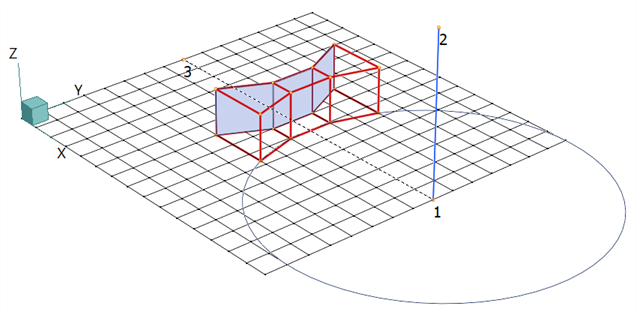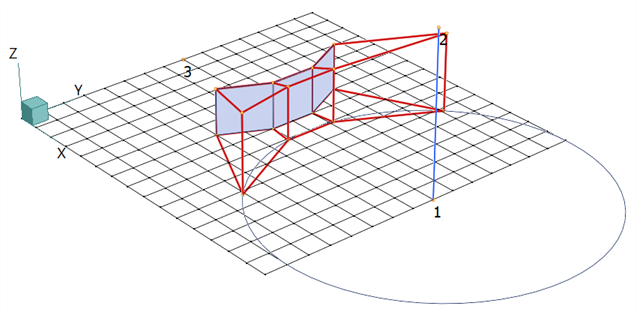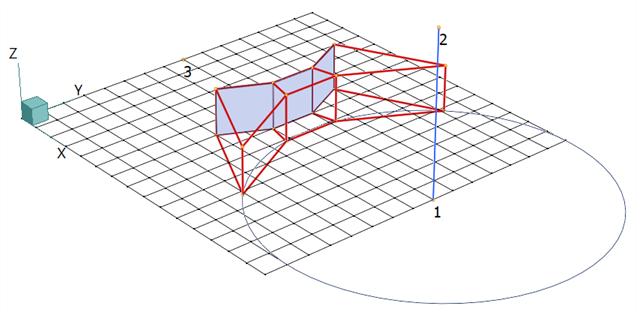Tools: Project to UCS
Description
This projection method is used by Copy Tools: by Projection to UCS, Move Tools: by Projection to UCS and Extrude Tools: by Projection to UCS.
The operation projects the source node to the target coordinate system (UCS). If the projection intersects multiple points on the UCS, the intersection closest to the source node is used.
In the following images, the three plate elements are the source and they are projected to the target UCS defined as a cylinder with axis through nodes 1 and 2, with radius indicated by the grey circle. In each image the projection result is indicated by the red lines, which trace the projection path of the source nodes.
Projection Direction - Target Normal
This projection method projects source nodes directly onto, and perpendicular to, the surface of the target UCS.
For an extrusion operation, the source plates below would produce hexahedral brick elements with edges perpendicular to the surface of the UCS at the projection point. For a copy or move operation, they would produce plate elements on the surface of the UCS.

Projection Direction - Parallel
This projection method requires the definition of a projection direction, which in the figure below is given by the dashed line from node 3 to node 1. Each source node is projected towards the UCS in a direction parallel to the dashed line.
For an extrusion operation, the source plates below would produce hexahedral brick elements with edges parallel to the projection direction. For a copy or move operation, they would produce plate elements on the surface of the UCS.

Projection Direction - Conical
This projection method requires the definition of a cone apex point from which a projection direction is defined for each source point. Once defined, this projection direction (one per source point) is used in the same way as the dashed line is used in the parallel projection method. The result is a conical projection onto the target UCS for each source point.
In the figure below, the apex point is node 3. For an extrusion operation, the source plates below would produce hexahedral brick elements. For a copy or a move operation, they would produce plate elements on the surface of the UCS.

Projection Direction - Source (Plate) Normal
This projection method is a further extension of the parallel method whereby a projection direction is defined for each source point based on the average normal of the connected plates at that point. Once defined, this direction (one per source point) is used in the same way as the dashed line is used in the parallel projection method.
For an extrusion operation, the source plates below would produce hexahedral brick elements. For a copy or move operation, they would produce plate elements on the surface of the UCS.
Note that no projection is produced if this method is applied to nodes that are not connected to plate elements.

See Also